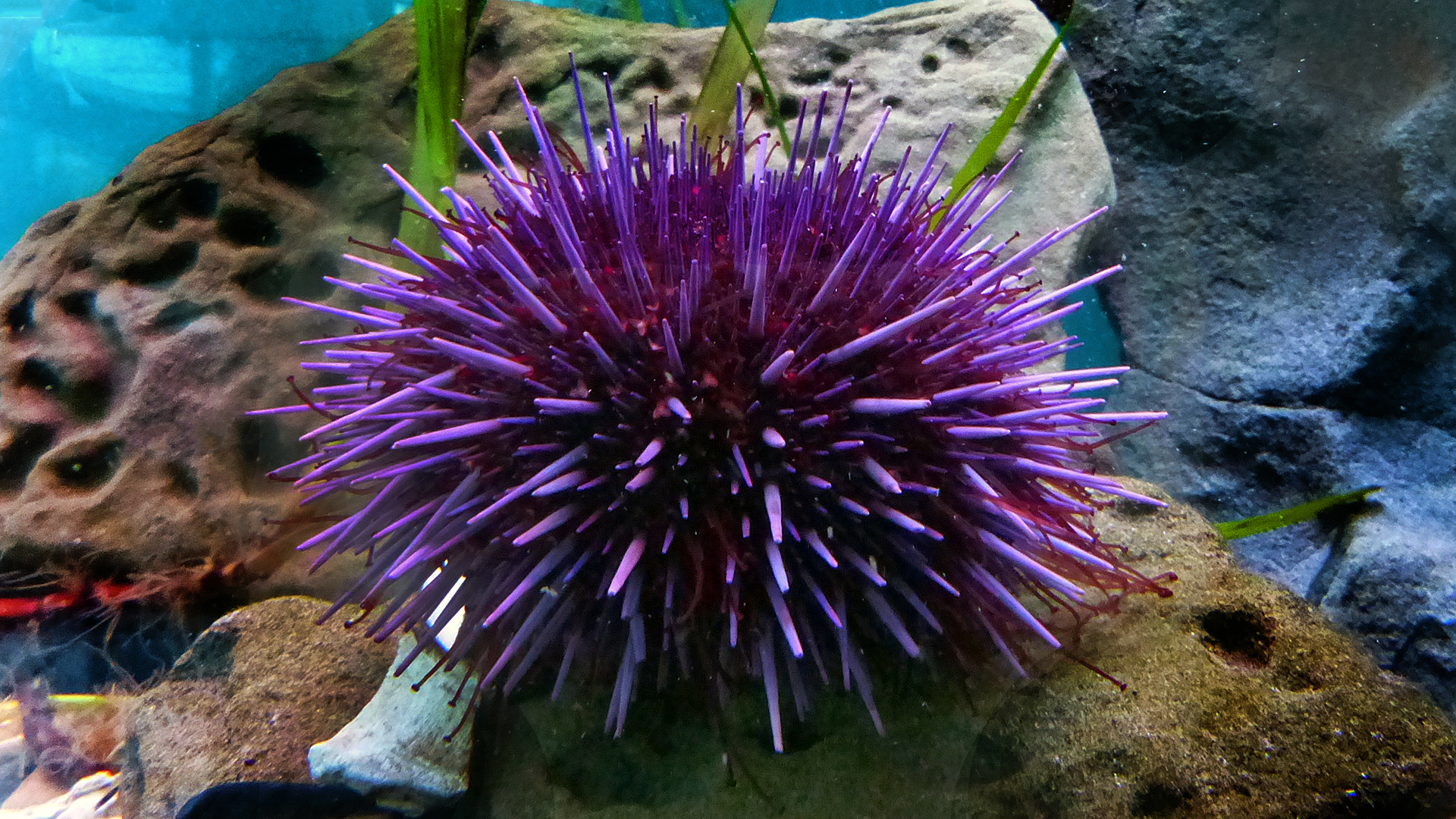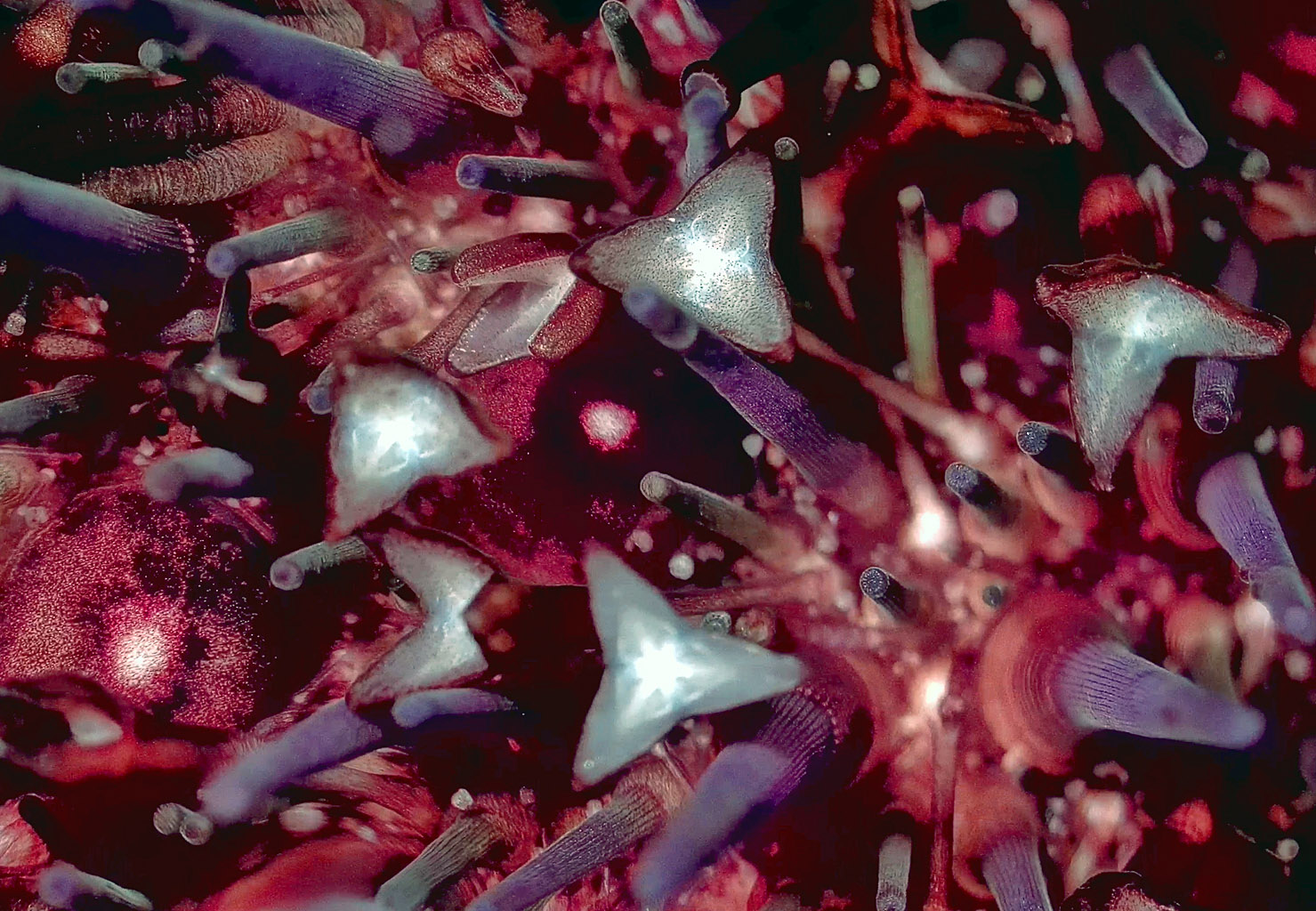
A close up showing the long spines, short spines, tube feet and the defensive pedicellariae – the modified tube feet that act like a triangular claw.
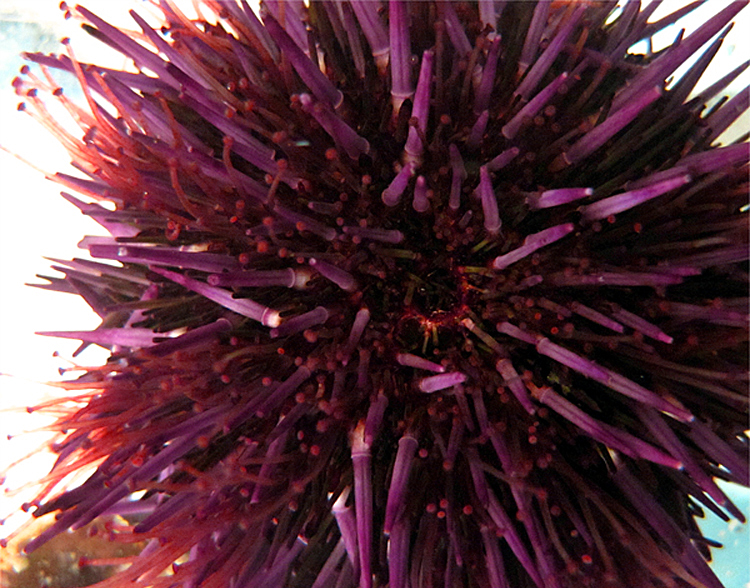
Habitat: Purple Sea Urchins are found from the coast of Alaska to the north of Mexico. They live in intertidal water to about 160m (535ft) deep on rocky coastlines. They use their spines to dig holes in pebbles, sand and rock to create a protective groove. These grooves are their homes and they shelter the urchins from crashing waves. Purple sea urchins like living with their friends and family, so you can usually find them in groups.
Food: The Purple Sea Urchin eats mostly algae. It has 5 teeth in a structure called an Aristotle’s lantern that help it bite and scrape algae off rocks. Their spines and body are covered in cilia which creates currents that draws small pieces of food to their mouth. They are also known to eat plankton, kelp, periwinkles, barnacles, mussels, dead fish and sea sponges.
Predators: Many things eat purple sea urchins, even though they have huge spines. Crabs, sunflower stars, snails, sea otters, some birds, fish and people like purple sea urchins on their menus.
Life Cycle: Purple sea urchins usually live up to 30 years or longer. They breed around January to March every year. The female sea urchins can produce up to twenty million eggs in one year. When the female sea urchins lay their eggs, the young urchins start off as larvae. It takes a few months for the larvae to develop into small baby sea urchins. It takes 2-5 years before a new sea urchin can reproduce.
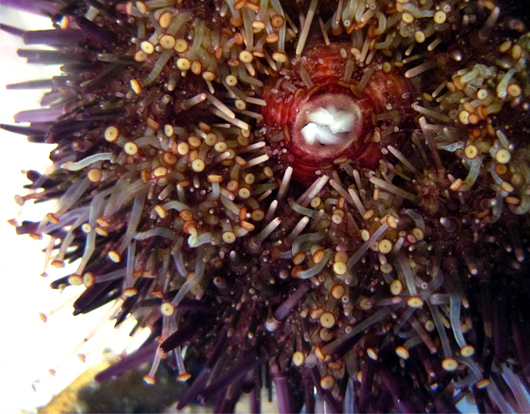
The underside of the purple sea urchin showing the mouth and 5 teeth (a structure called Aristotle’s lantern).
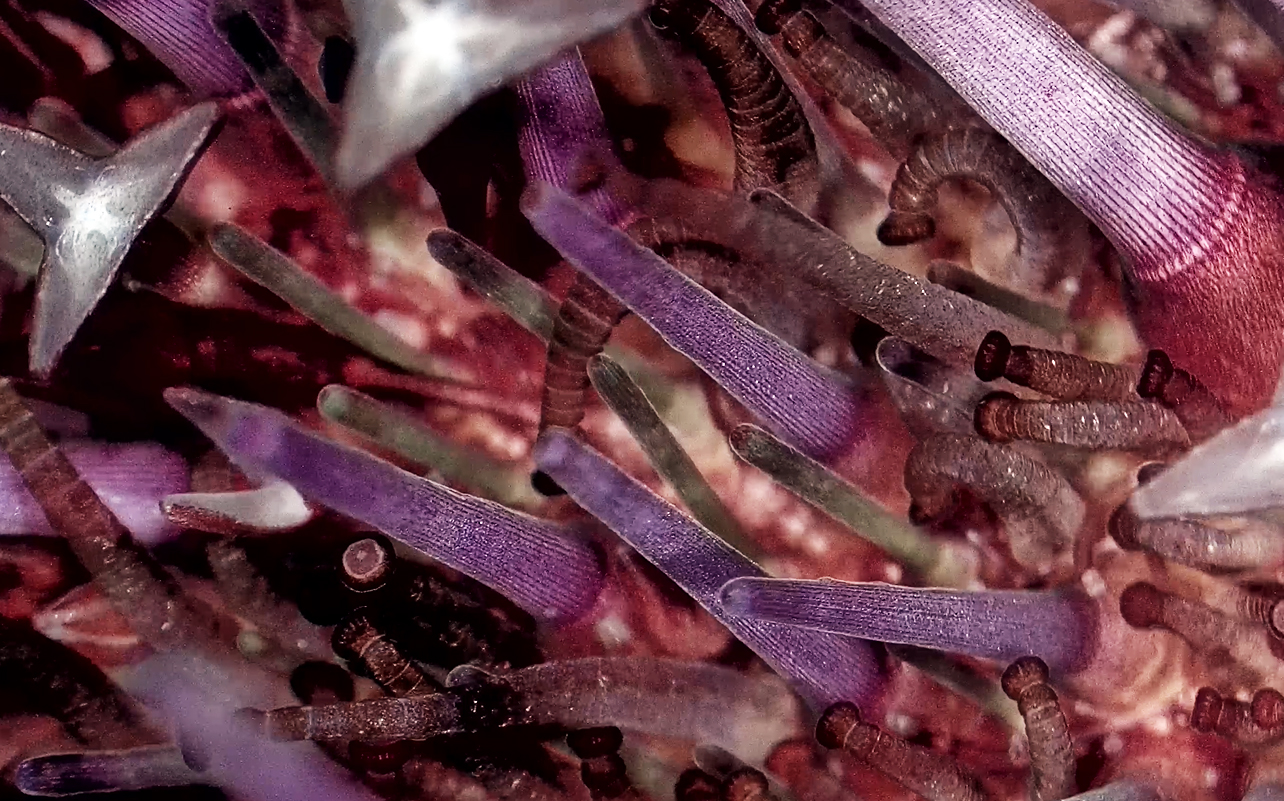
Another close up showing the long spines, short spines, tube feet and the defensive pedicellariae.
Photographs by Emma Grigg, Nastja Kharine and D. Young
Video by Emma Grigg & Nastja Kharine.
References:
Lamb, A. and Hanby, B. (2005). Marine life of the Pacific Northwest: A photographic encyclopedia of invertebrates, seaweeds and selected fishes. Madeira Park, BC, Canada: Harbour Publishing.
Purple Sea Urchin. Enchanted Learning. Retrieved June 8, 2010 from http://www.enchantedlearning.com/subjects/invertebrates/echinoderm/Purpleseaurchin.shtml
Sept, J.D. (1998). The beachcombers guide to seashore life in the Pacific Northwest. Madeira Park, BC, Canada: Harbour Publishing
Tide Pool Team. Purple Sea Urchin. Secrets of the Tide Pools. Retrieved June 8, 2010 from http://library.thinkquest.org/J002608/urchin.html
Vickery, K. and Fam, M. (September 2008). The Purple Sea Urchin: Pretty, Purple, Protective. Tree of Life. Retrieved June 8, 2010 from http://tolweb.org/treehouses/?treehouse_id=4879

